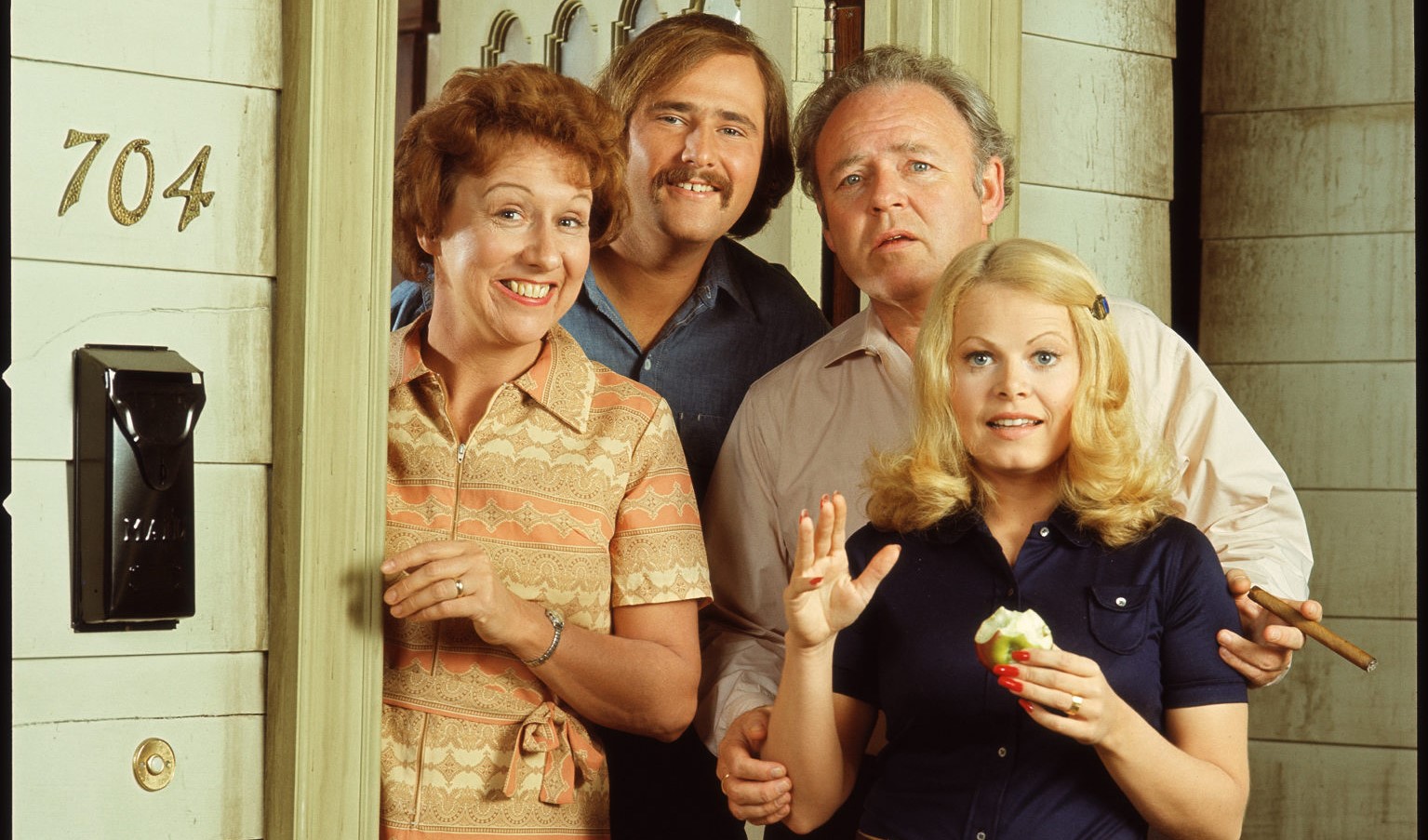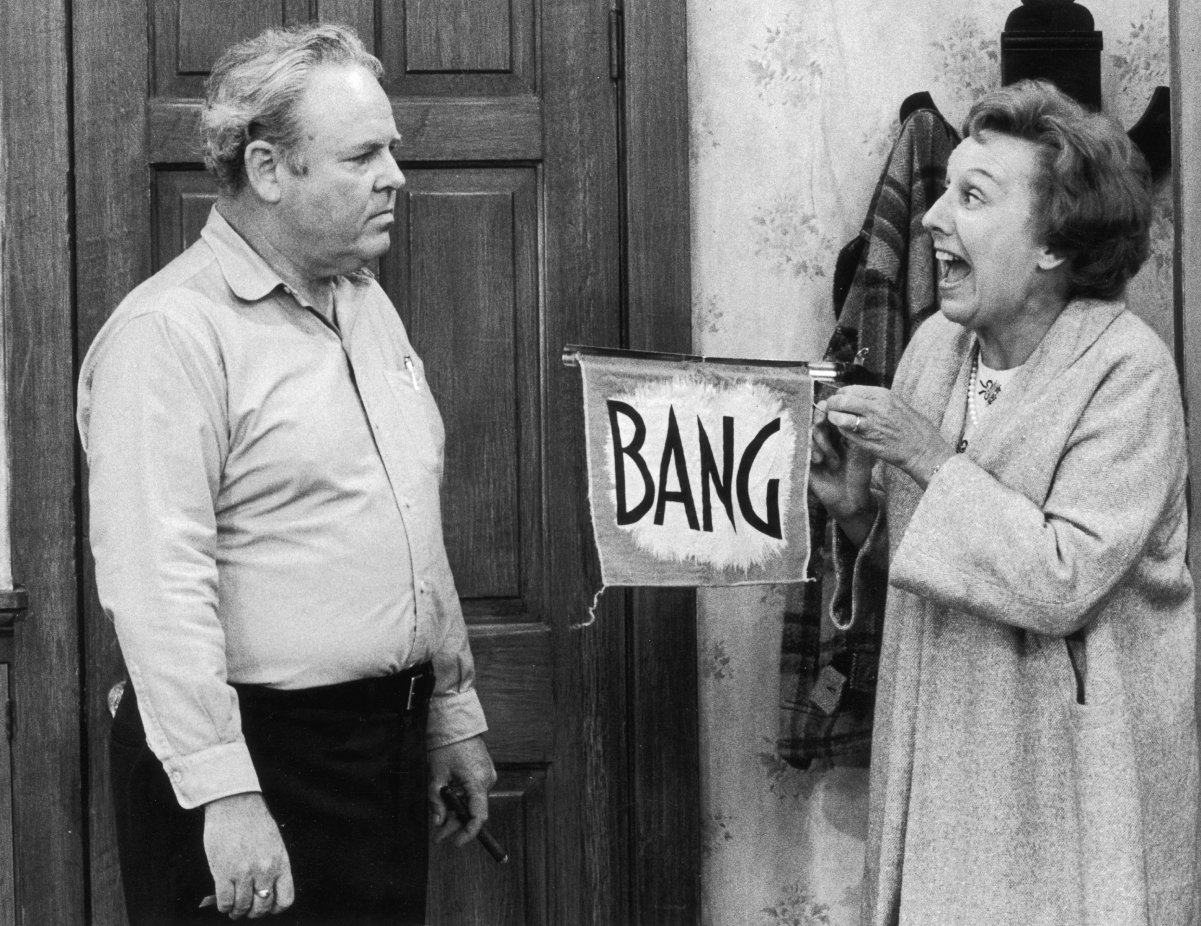
To navigate this uncertain terrain, CBS deemed it essential to include a viewer advisory at the start of each episode, a decision that would help contextualize the show’s audacious approach.
The Intent Behind the Show’s Controversial Premise
Lear’s intention was not to glorify bigotry but to satirize it. He crafted the character of Archie Bunker—a working-class man who held deeply flawed beliefs about race and culture—not to promote his views, but to expose the absurdity of such attitudes. In his 2015 memoir, Even This I Get to Experience, Lear articulated his perspective: “It wasn’t that I thought bigotry per se could be funny, but that a fool on any subject can be funny.” Archie represented a character defined more by fear than malice. Lear observed, “He was afraid of tomorrow. He was afraid of anything new,” a sentiment encapsulated in the show’s iconic theme song.
The opening tune, performed by Carroll O’Connor (Archie) and Jean Stapleton (Edith), reflects Archie’s longing for the past: “Gee, our old LaSalle ran great, those were the days.” Lear elaborated that Archie’s nostalgia was rooted in his discomfort with change, making him more a victim of his own fears than a truly terrible person.
Predictions of Controversy
In developing the show, Lear considered various actors for the role of Archie, including Hollywood legend Mickey Rooney. Upon hearing the concept, Rooney cautioned Lear about the potential backlash, famously warning him that viewers would be outraged: “Norm, they’re going to kill you, shoot you dead in the streets.” Ironically, Rooney’s fears were unfounded, as All in the Family became a cultural phenomenon, resonating with audiences in ways that even Lear had not anticipated.
The Importance of the Viewer Advisory
With such a controversial premise, the advisory was crucial. Lear recounted his mixed emotions while watching the first episode air. He was uncertain whether to laugh or cry, a sentiment echoed by his friends and colleagues who gathered to watch the show together. As the show began, viewers were greeted with a warning that read:
“The program you are about to see is All in the Family. It seeks to throw a humorous spotlight on our frailties, prejudices, and concerns. By making them a source of laughter, we hope to show—in a mature fashion—just how absurd they are.”
This advisory set the tone, framing the show’s content in a way that encouraged audiences to reflect critically on the issues presented.
As Lear humorously noted, after that advisory aired, “not a single state seceded from the Union,” demonstrating that while the show tackled divisive subjects, it ultimately resonated with viewers and fostered dialogue rather than discord.
A Lasting Impact
All in the Family not only reshaped the television landscape but also paved the way for future shows to engage with challenging social issues. Its viewer advisory became a necessary tool for navigating controversial content, reminding audiences that humor could be a powerful vehicle for reflection and understanding. Today, it stands as a testament to the show’s profound impact on American culture and its ability to confront uncomfortable truths through comedy.
